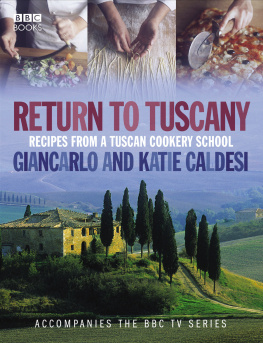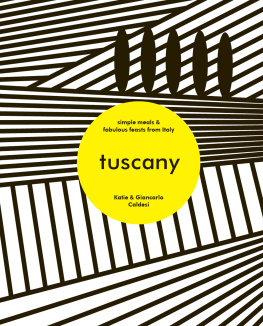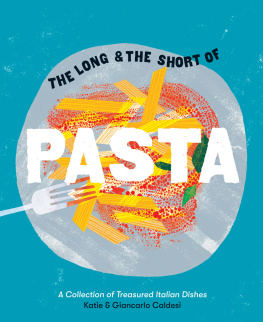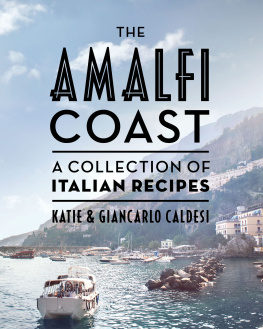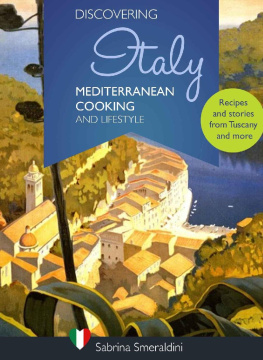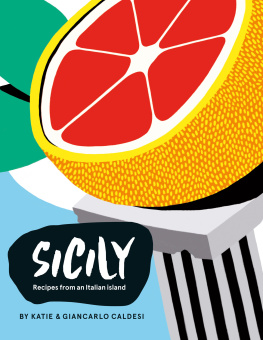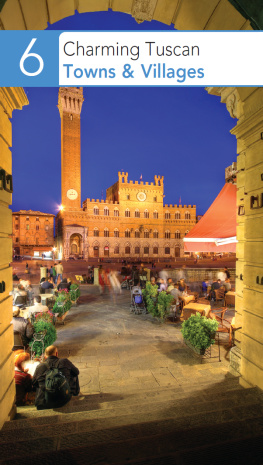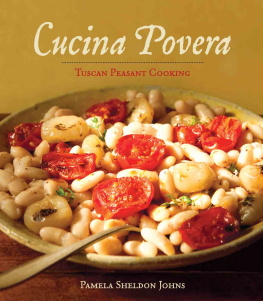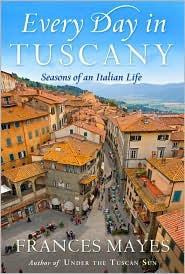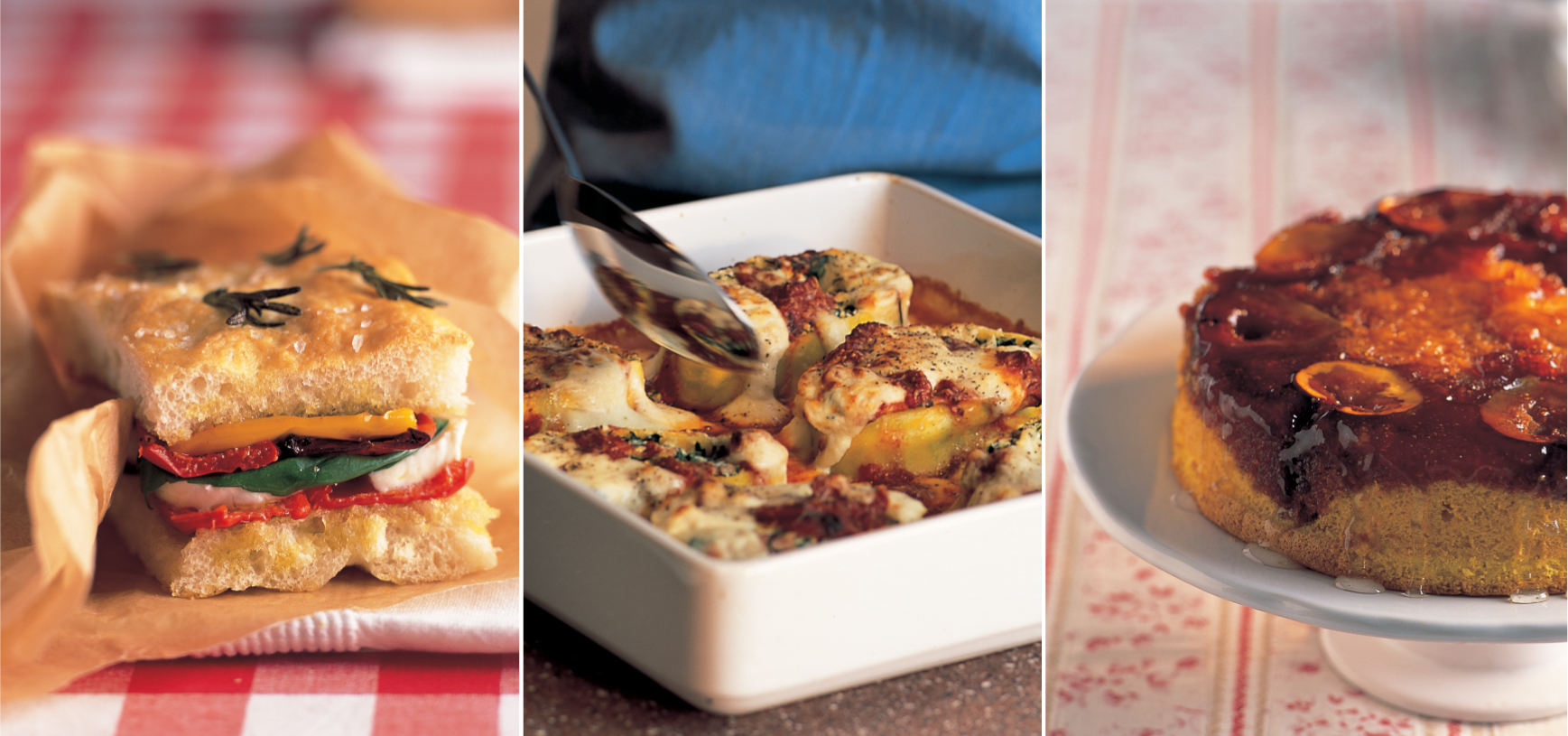about the author
Giancarlo and Katie Caldesi run two successful restaurants in Marylbone, London the Caldesi restaurant and Caff Caldesi. They held cooking classes in the restaurant kitchen for six years, before expanding their business to form La Cucina Caldesi, a cookery school that offers courses in Italian food and wines. After the success of their cookery classes in Tuscany in 2005, they are planning to return there every summer. Giancarlo and Katie's first book, The Italian Mamas Kitchen, was published in 2005.
about the book
Giancarlo and Katie Caldesi, the husband-and-wife team behind two Italian restaurants and a cookery school in London, are passionate about food and about Italy. Their eagerness to share this with others inspired them to relocate to Tuscany for a few months, to rediscover Giancarlos culinary roots and run a series of courses in traditional Tuscan cooking.
Return to Tuscany is the result of their successful sojourn in Tuscany. Each chapter starts with a lesson, reflecting the different stages of their cookery course, guiding you through the basic techniques of pasta-making, choosing the best ingredients for an antipasti platter, cooking meat on an open fire, and many other aspects of Tuscan cooking.
In 80 delicious regional recipes, Giancarlo and Katie pass on methods used by generations of the Caldesi family, with tips supplied by their Italian friends and neighbours. They describe how to make well-known Tuscan dishes, such Tomato Bruschetta, the classic Ribollita soup and the traditional Plum Crostata, as well as personal favourites that were popular with their students, including Mussel and Clam Spaghetti with Fresh Tomato Salsa and Chicken with Cinnamon and Lemon.
Illustrated with a wealth of stunning location shots and food photography, Return to Tuscany is both an easy-to-follow cookery book and an inspirational introduction to the culture and traditions of this beautiful part of Italy.
Contents
Returning to Tuscany
As the final wooden spoon and measuring jug were squeezed into the boot of our car, Giancarlo looked at me and said, Enough, we have to go. The stress of trying to finish everything at work, packing, persuading two children to leave their home and apprehension about what was in store for us made us bicker like children for the first couple of hours of our journey to Tuscany. We had decided to open a cookery school there for September 2005, and we were going to be filmed doing it.
We knew it was going to be hard work with new students arriving and old ones departing on the same day and that most of the time we would be miked up and followed by cameras.
When we reached Dover, late at night in the pouring rain, we carried the sleeping children into a cheap hotel next to a noisy bus station and tried to sleep. The next day the sun shone and we got up early for the ferry to France. The children were excited and so were we. Over the next three days, Giancarlo and I had time to calm down. As the landscape grew more beautiful around us, our stress disappeared and we talked over every aspect of what we expected of the next few weeks.
We had been married in Montepulciano, Tuscany, in June, opened our cookery school in London in July, honeymooned in the Caribbean in August and now we had packed up to run a cookery school in Italy for a few weeks in September. Friends and family told us we were crazy and they were probably right! In fact, the school in London should have opened in April, giving us more time to see it established before we abandoned it. As it was, we had to brief the staff of our restaurants and new cooking school and leave the businesses in their hands.
Giancarlos father, Memmo, had died in Tuscany in the summer of 2004. This personal loss was compounded by the tragic sale of the home that had been in the family for generations. We knew this would be an emotional journey for Giancarlo; he wanted to have a memorial service for his father and sort out the last of his belongings. He feared he was losing touch with his roots, so we were keen to re-establish a foothold in Tuscany.
Before committing to buying a house in Tuscany, we thought wed see how we felt about living there either temporarily or permanently; what the children would think of it; how they would settle into Italian school life; and what wed think about living in the countryside instead of central London. We also liked the idea of bringing people to Tuscany and teaching them to cook so the idea of setting up a Tuscan cookery school was born.
In December 2004 we had looked at several villas to rent for the following summer and then come across Hotel Le Rotelle () outside the small town of Torrita di Siena. It was in a beautiful rural location near Montepulciano, where Giancarlo had grown up. It had a wonderful view, a large newly built pool and, despite being a hotel, the building seemed small enough to still feel homely. The only trouble was that there was no one there when we went to visit. We peered in through the windows and could just about make out the kitchen, the restaurant and one of the bedrooms. We fell in love with it and then had to rush to catch the plane home. Over Christmas we negotiated a deal with the owners and started advertising the cookery school. On our next visit, in February, we checked out the inside and decided to have our wedding reception there. That way we could spend a week ironing out any problems before opening the school.

Ironically, it was the loss of his father and his family home that led Giancarlo to realize that this was the right time to return to Tuscany, to rediscover his roots, his family and the local recipes an opportunity to reconnect with his culture and to introduce me to his past. We had been living together for eight years and now we wanted to get married. Giancarlo wanted to have a big wedding, to invite both English and Italian families, and to have a chance to get to know his vast array of cousins, both close and distant, all over again.
Why Giancarlo left Tuscany
Giancarlo and his family had endured poverty for many years, as did many Italians at the time of his childhood. This, coupled with visits from a wealthy cousin who had emigrated to America, gave him a wanderlust, a need to discover the world, abandon his farming background and search for a more prosperous way of life. Until he was 17 years old he had never set foot out of Tuscany and his family had never taken holidays. At the earliest opportunity Giancarlo left home to work as a

